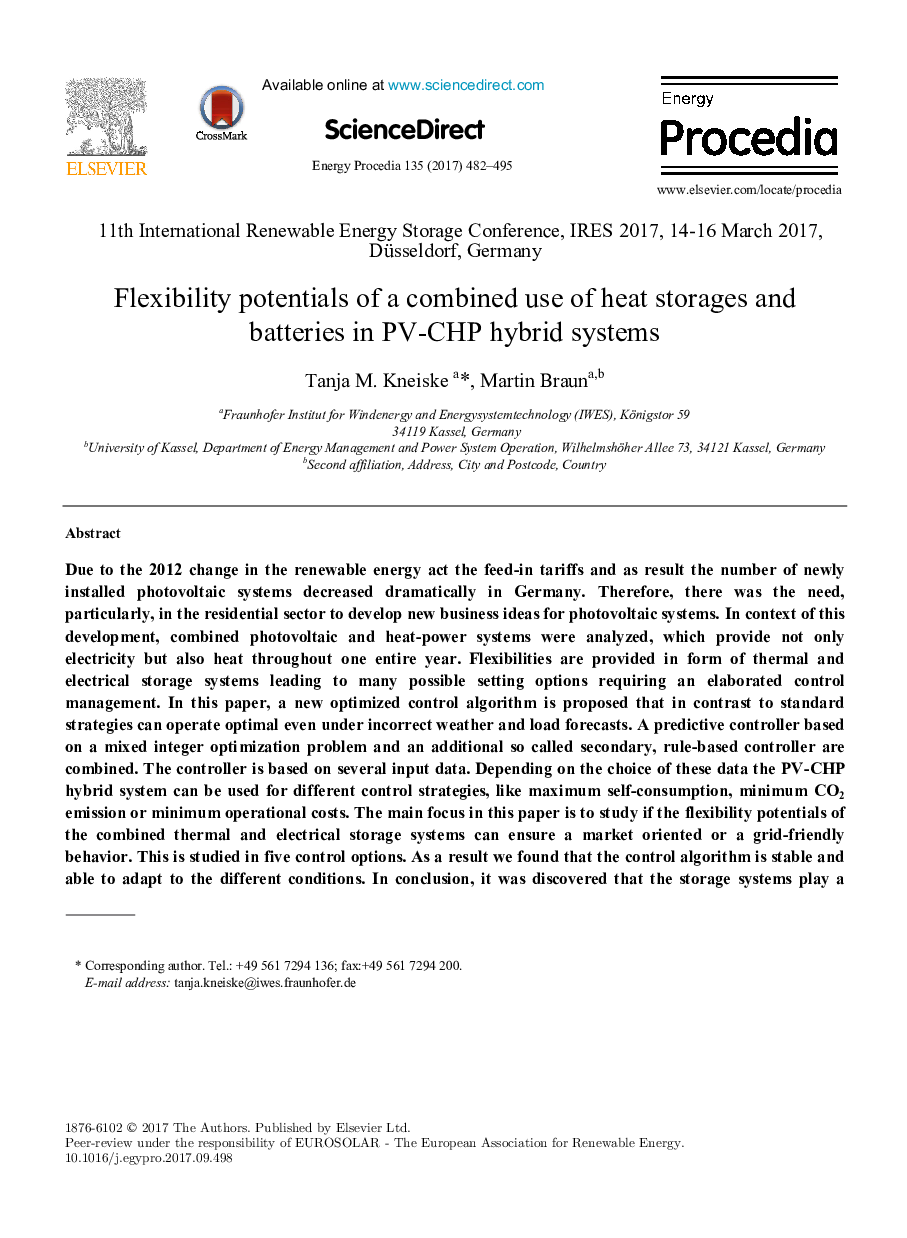| Article ID | Journal | Published Year | Pages | File Type |
|---|---|---|---|---|
| 7918686 | Energy Procedia | 2017 | 14 Pages |
Abstract
Due to the 2012 change in the renewable energy act the feed-in tariffs and as result the number of newly installed photovoltaic systems decreased dramatically in Germany. Therefore, there was the need, particularly, in the residential sector to develop new business ideas for photovoltaic systems. In context of this development, combined photovoltaic and heat-power systems were analyzed, which provide not only electricity but also heat throughout one entire year. Flexibilities are provided in form of thermal and electrical storage systems leading to many possible setting options requiring an elaborated control management. In this paper, a new optimized control algorithm is proposed that in contrast to standard strategies can operate optimal even under incorrect weather and load forecasts. A predictive controller based on a mixed integer optimization problem and an additional so called secondary, rule-based controller are combined. The controller is based on several input data. Depending on the choice of these data the PV-CHP hybrid system can be used for different control strategies, like maximum self-consumption, minimum CO2 emission or minimum operational costs. The main focus in this paper is to study if the flexibility potentials of the combined thermal and electrical storage systems can ensure a market oriented or a grid-friendly behavior. This is studied in five control options. As a result we found that the control algorithm is stable and able to adapt to the different conditions. In conclusion, it was discovered that the storage systems play a crucial role in terms of forecast differences and parameter changes. Storage systems are as expected the key-element for the flexibility of PV-CHP hybrid systems.
Related Topics
Physical Sciences and Engineering
Energy
Energy (General)
Authors
Tanja M. Kneiske, Martin Braun,
